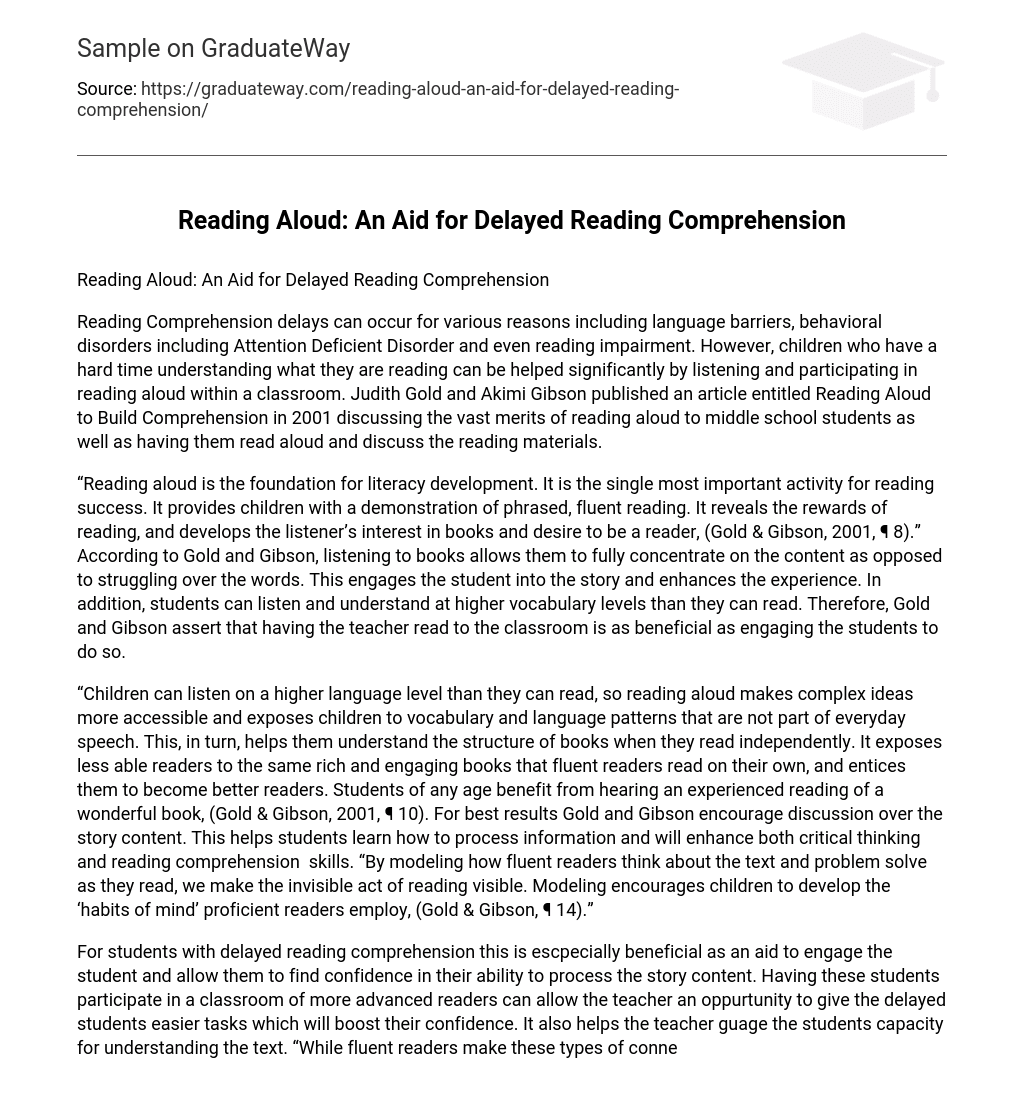Reading Comprehension delays can occur for various reasons including language barriers, behavioral disorders including Attention Deficient Disorder and even reading impairment. However, children who have a hard time understanding what they are reading can be helped significantly by listening and participating in reading aloud within a classroom. Judith Gold and Akimi Gibson published an article entitled Reading Aloud to Build Comprehension in 2001 discussing the vast merits of reading aloud to middle school students as well as having them read aloud and discuss the reading materials.
“Reading aloud is the foundation for literacy development. It is the single most important activity for reading success. It provides children with a demonstration of phrased, fluent reading. It reveals the rewards of reading, and develops the listener’s interest in books and desire to be a reader, (Gold & Gibson, 2001, ¶ 8).” According to Gold and Gibson, listening to books allows them to fully concentrate on the content as opposed to struggling over the words. This engages the student into the story and enhances the experience. In addition, students can listen and understand at higher vocabulary levels than they can read. Therefore, Gold and Gibson assert that having the teacher read to the classroom is as beneficial as engaging the students to do so.
“Children can listen on a higher language level than they can read, so reading aloud makes complex ideas more accessible and exposes children to vocabulary and language patterns that are not part of everyday speech. This, in turn, helps them understand the structure of books when they read independently. It exposes less able readers to the same rich and engaging books that fluent readers read on their own, and entices them to become better readers. Students of any age benefit from hearing an experienced reading of a wonderful book, (Gold & Gibson, 2001, ¶ 10). For best results Gold and Gibson encourage discussion over the story content. This helps students learn how to process information and will enhance both critical thinking and reading comprehension skills. “By modeling how fluent readers think about the text and problem solve as they read, we make the invisible act of reading visible. Modeling encourages children to develop the ‘habits of mind’ proficient readers employ, (Gold & Gibson, ¶ 14).”
For students with delayed reading comprehension this is escpecially beneficial as an aid to engage the student and allow them to find confidence in their ability to process the story content. Having these students participate in a classroom of more advanced readers can allow the teacher an oppurtunity to give the delayed students easier tasks which will boost their confidence. It also helps the teacher guage the students capacity for understanding the text. “While fluent readers make these types of connections with ease, many readers do not. Children need to be shown this type of thinking and then asked to join in and participate in book conversations. This active involvement gives you, the teacher, a glimpse into each reader’s thinking, (Gold & Gibson, ¶ 17).”
In conclusion, Gold and Gibson assert that reading aloud is beneficial to students on all levels. However, for comprehension delayed readers this model of reading is great for instructing student about how to “think aloud.” Thinking aloud is essentially an illistration of the mechanisms in which readers process story content and come to a conclusion about what they have read. This actrivity is critical for the development of reading comprehension and critical thinking skills.
Reference
Gold, J., & Gibson, A. (2001). Reading Aloud to Build Comprehension. Reading Rockets. Retrieved from www.readingrockets.org





